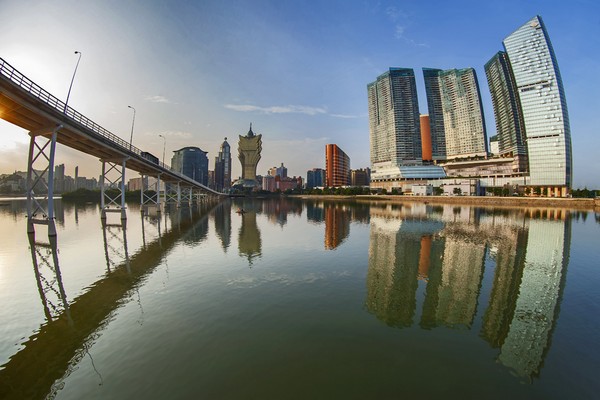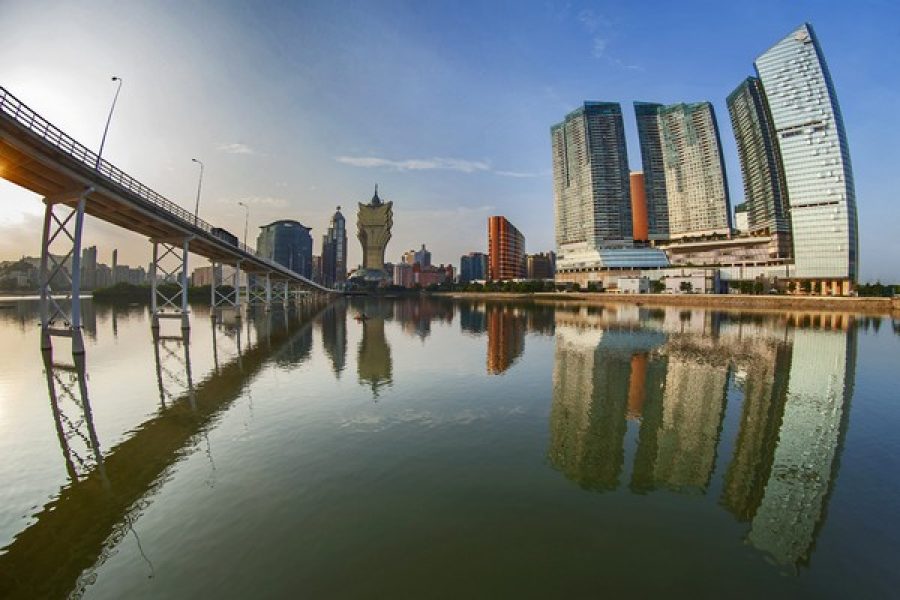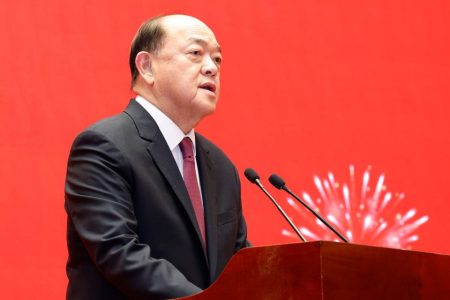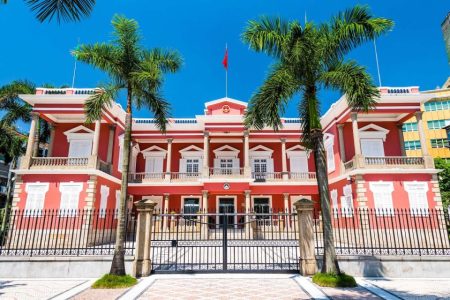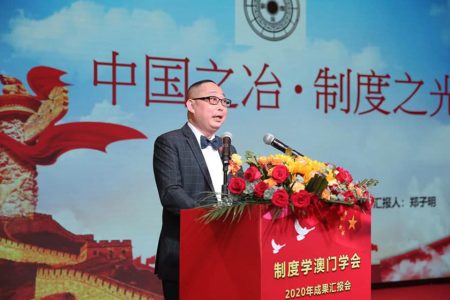Macau Polytechnic Institute (IPM) Professor Ieong Wan Chong said Tuesday it was “unlikely” that the city will have university suffrage for the 2019 chief executive election.
Ieong also said that local citizens were still more concerned about livelihood issues than politics.
He also said that if there is no change in the method of Hong Kong’s 2017 chief executive election this could result in Macau “having no room” to discuss universal suffrage for its own chief executive election.
Ieong, a local expert in the “One Country, Two Systems” principle who is also a former local deputy to the National People Congress (NPC), made the remarks to reporters after a ceremony to launch his Chinese-language book “One Country, Two Systems” at the IPM’s lecture theatre.
Asked by reporters for his comments on some residents calling for the start of political reform next year and the introduction of universal suffrage for the 2019 chief executive election, Ieong said he believed Chief Executive Fernando Chui Sai On would give a “basic” response to the call for political reform in his 2015 Policy Address later this year.
“Theoretically speaking it [universal suffrage for the 2019 chief executive election] could happen…however, considering reality, it is unlikely [there will be universal suffrage for the 2019 chief executive election],” Ieong said.
Chui was re-elected in Sunday’s fourth-term chief executive election with 380 votes from among the 396 member of the Chief Executive Election Committee who cast their ballots. The committee comprises 400 members, elected by about 5,800 representatives of a wide range of associations. Chui is expected to present his 2015 policy guidelines to the Legislative Assembly (AL) in November. His second five-year term starts on December 20.
Activist groups including the grassroots New Macau Association (NMA) have called for the start of political reform next year and the introduction of universal suffrage for the 2019 chief executive election. Meanwhile, according to the results of a controversial online “civic referendum”, which was carried out by three activist groups on August 24-31 and involved 8,688 voters, some 95 percent supported universal suffrage for the 2019 chief executive election. The “referendum” found that 89.3 percent of the voters said that they had no confidence in Fernando Chui Sai On as the sole candidate of the 2014 chief executive election.
The government has said that the “referendum” was illegal and invalid.
“Those [groups and voters] are just a small number of residents… the general public is concerned more about livelihood issues than who will be elected or who will be the principal officers. They [citizens] are concerned about whether the city’s economy develops or not…,” Ieong said, adding he believed if universal suffrage for Hong Kong’s chief executive in 2017 and 2022 goes well then Macau could also implement universal suffrage.
“Political reform should never come to an end…always working towards a better system, universal suffrage is better than the indirect election system…there is no doubt that Macau should implement universal suffrage,” Ieong said, adding that there should be progress in political reform but always based on consensus in civil society.(macaunews/macaupost)
